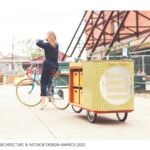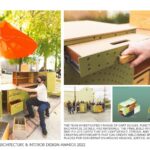How can design start a conversation and serve as tool for advocacy and education?
The Apothecarts are a series of mobile apothecary carts that challenge us to imagine a landscape without prisons. There are 2.2 million incarcerated people in the United States, and of those around 90,000 are subjected to indefinite solitary confinement every day.
Global Design & Architecture Design Awards 2022
First Award | Pop-Ups and Temporary (Built)
Project Name: Apothecarts
Project Category: Pop-ups and Temporary (Built)
Studio Name: Albert and Tina Small Center for Collaborative Design
Design Team: Elizabeth Bateman, Jeremy Baudy, Anna Deeg, Claire Divito, Rebecca Dunn, Adrian Evans, Danelle Martin, Danielle Scheeringa, Bhumika Shirole, Zach Speroni, James Rennert, Dana Ridenour, Emilie Taylor Welty, Nick Jenisch
Area: Design Justice/Public Interest Design
Year: complete, 2021
Location: New Orleans, Louisiana, USA
Consultants: Workhaus, Ultroplois Trailers, Tulane Milhaus
Photography Credits: Jose Cotto
Text Credits: Emilie Taylor Welty
Other Credits: Solitary Gardens
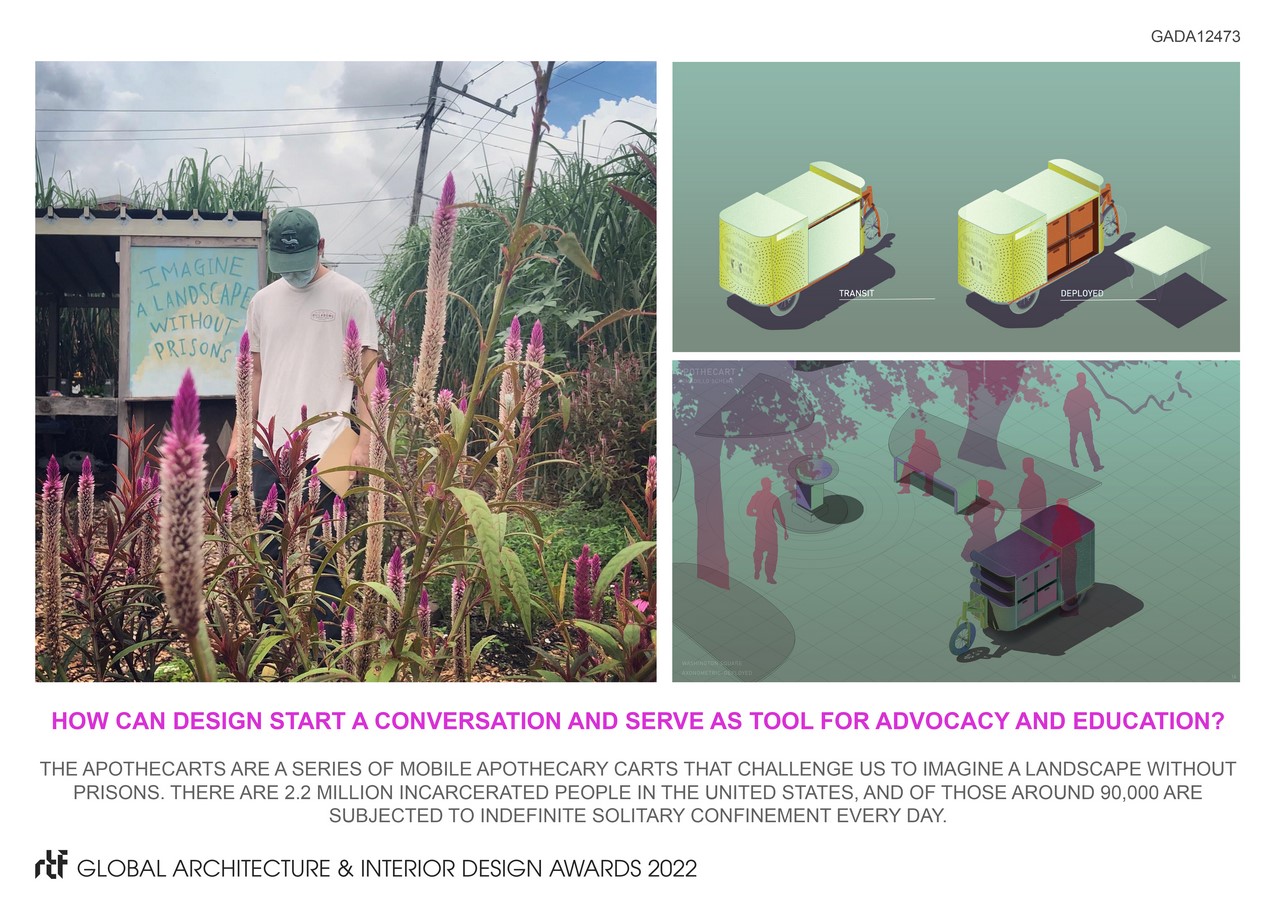
The devastating, and often irreparable, effects of solitary confinement include, but are not limited to, alienation, dehumanization, despair, disorientation, paranoia, and suicidal ideation. The Prisoner’s Apothecarts are a series of mobile healing units that transform plants from Solitary Gardens into medicine for communities most deeply impacted by the insidious reach of mass incarceration. The apothecary produces natural medicine, tea, tinctures, steams, and salves in conversation (written letters) with folks in solitary confinement across the US.
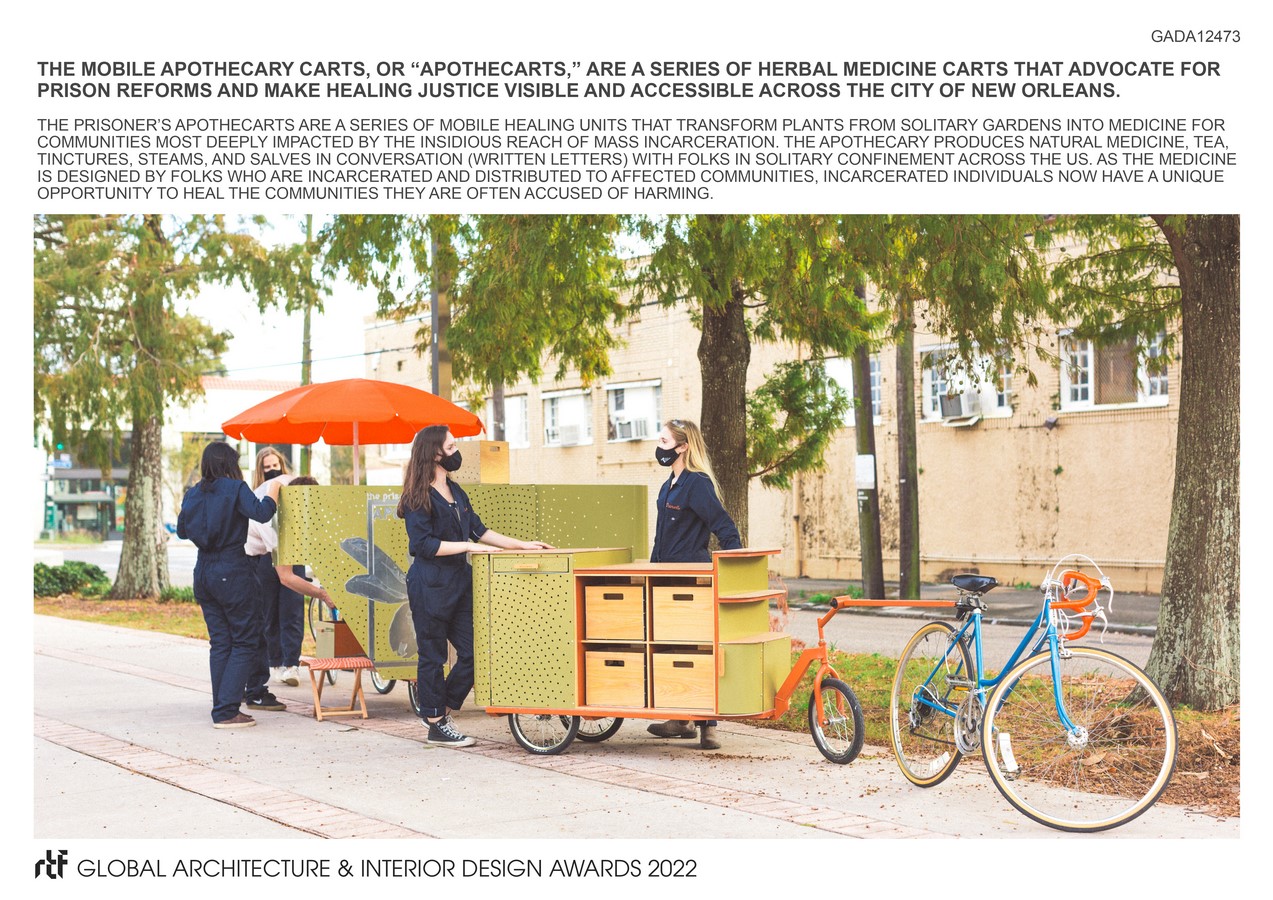
As the medicine is designed by folks who are incarcerated and distributed to affected communities, incarcerated individuals now have a unique opportunity to heal the communities they are often accused of harming. The mobile apothecary carts, or “apothecarts,” are a series of herbal medicine carts that advocate for prison reforms and make healing justice visible and accessible across the City of New Orleans.
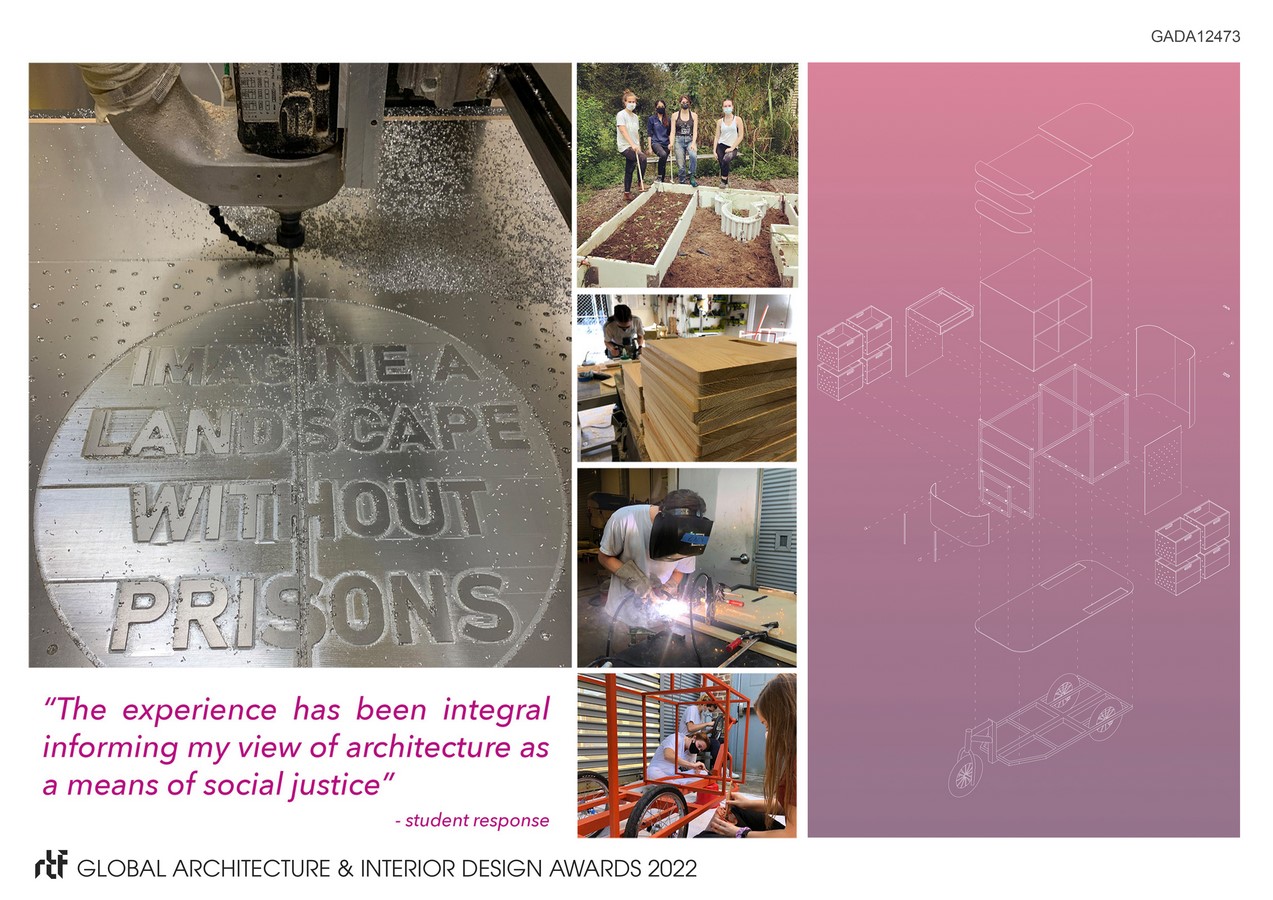
The Apothecarts were designed and built during the fall of 2020 by a studio of architecture students. This work is an ongoing effort to expand design access across our community, improve the design process, and prepare a new generation of architects to create a more just world. This academic studio pairs a team of architecture students with a local non-profit to program, design, and fabricate a project that models design excellence and best practices in community engagement.
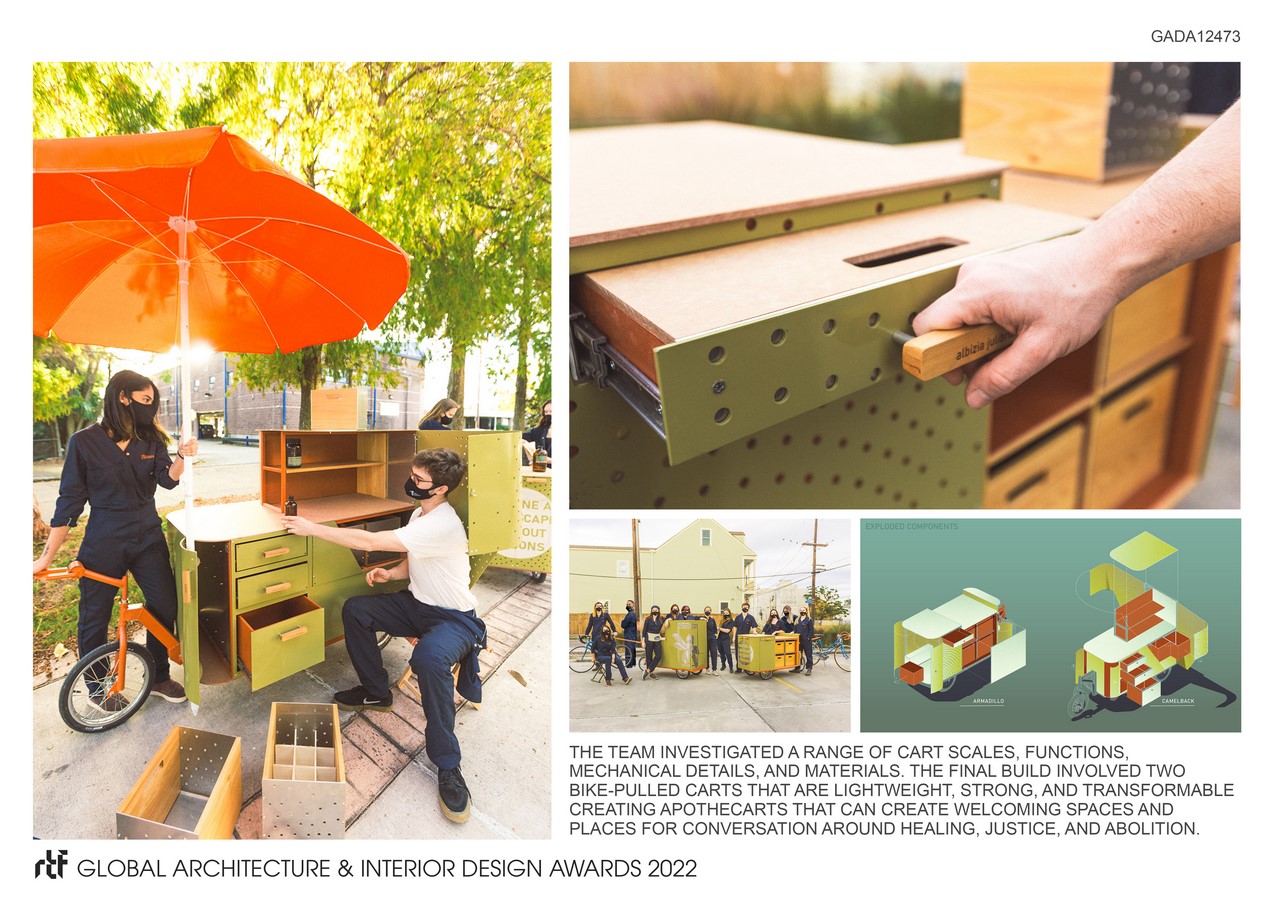
This research is action based and includes interviews, area expert teach-ins, observation, and surveys as part of the project design phase. That research then directs the design options presented to a core group of stakeholders who participate in a multi-stage feedback loop resulting in a final built project, or in this case two small built projects. The Apothecarts project is focused at the intersection of design, social justice, and abolition and makes a case for the positive impacts of design on complex social issues.


